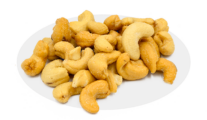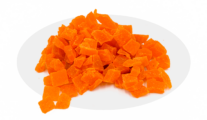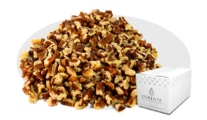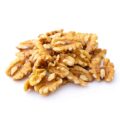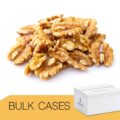Written By Sam Henselijn
Walnuts make for a tasty snack with many benefits for the human body. Can dogs eat walnuts? They are rich in vitamins, healthy fats, and minerals. Walnuts are also good for your heart. They reduce the risk of cardiovascular diseases and lower stress. We may be tempted to share our snacks with our pets but you need to be cautious when feeding human food to your dog. This is because dogs have a different digestive system from humans. We may feel the need to share this snack with our canine friends, but can dogs eat walnuts? Below, we tell you why walnuts may be particularly hazardous for your pet friend.
Can dogs eat walnuts?
Your dog may get a hold of one or two walnuts and this should
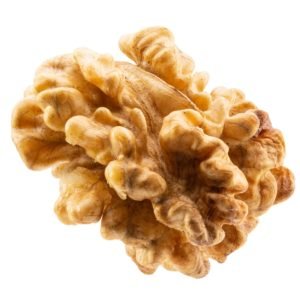
not be a concern. However, walnuts can be toxic to our canine friends. Black walnuts contain a poisonous substance known as juglones. The roots of a walnut tree secrete juglone to discourage other plants from sticking to the tree. This poisonous substance can trigger convulsions in your dog. Walnuts are high in fat content and this can cause weight problems with your dog.
The moisture content in walnuts is also high and thus encouraging the growth of molds and fungi. Molds or fungi can also grow on stored walnuts. Certain fungi produce poisonous chemicals called mycotoxins that can cause seizures in dogs.
What to look out for in case your dog ingests walnuts
If your dog has eaten walnuts, you must be on the lookout for
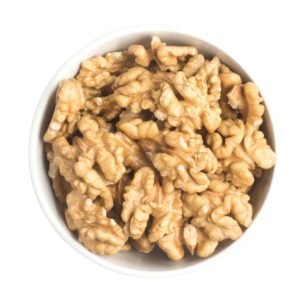
symptoms such as tremors, vomiting, and seizures. As soon as you notice these symptoms, call your veterinarian. These symptoms can cost the life of your dog if not attended to.
Walnuts may also cause stomach upset in your dog due to their high fat content. In rare cases, your dog may get an inflamed pancreas. Processed walnuts may also contain seasonings and additives like salt. Too much salt can lead to high blood pressure in dogs.
If your dog has an underlying kidney or heart disease, avoid feeding them processed nuts. The high salt content in processed nuts may exacerbate the condition. Even if walnuts are free from molds they can cause intestinal blockages. Smaller breeds are especially vulnerable. Intestinal bleeding happens after a shell or walnut gets stuck in your dog’s system. This makes it hard for the walnut to pass through the intestines properly.
Walnut shells may disintegrate into small pieces, causing tears to the gastrointestinal pathway. Gastrointestinal perforation can cause loss of appetite, abdominal discomfort, and frequent vomiting. Your dog may also be lethargic and appear weak or depressed.
If your dog presents with these symptoms, contact your veterinarian immediately. Such blockages may be fatal if your pet is not attended to promptly and often needs surgery.
Are walnuts beneficial to dogs?
Walnuts are rich in fiber, minerals, fats, and vitamins. They benefit human health, but dogs may not fully reap those benefits. The negative effects of eating walnuts supersede any positive benefits of eating walnuts. The risk of fungi in walnuts further overrides the likely benefits of feeding them to your dog.
Final thoughts
Walnuts Nuts may pass for a tasty treat to your canine friend, but can dogs eat walnuts? Accidental consumption of walnuts may not cause any harm to your dog, but the high-fat content can lead to weight problems. Walnuts are also prone to molds and fungi which may trigger seizures. The negative health benefits of walnuts outweigh their positive benefits. Thus, you are better off keeping your dog away from walnuts. Make sure always to contact your vet with any animal-related questions. The above information is based on our findings and research.
What happens if a dog eats a walnut?
A dog eating a walnut can lead to walnut poisoning due to the presence of juglone. Symptoms may include vomiting, diarrhea, lethargy, and incoordination. The high-fat content in walnuts can also cause pancreatitis. Immediate veterinary attention is crucial.
Sam Henselijn Author’s Biography – Meet L’Orenta Nuts CEO
Copyright 2024 L’Orenta Nuts
L’Orenta Nuts proudly holds the SQF food safety certification, symbolizing our unwavering dedication to upholding the highest standards of food safety and quality. This certification guarantees that our products undergo rigorous scrutiny, ensuring transparency, traceability, and adherence to global food safety regulations for the utmost consumer confidence.
L’Orenta Nuts has the HACCP (Hazard Analysis and Critical Control Points) certification is a systematic approach to identifying, evaluating, and controlling food safety hazards. It ensures that food products are produced and handled in a manner that minimizes risks and complies with safety standards.
Our GMP (Good Manufacturing Practices) certification ensures that a manufacturing facility adheres to comprehensive quality and safety standards while producing pharmaceuticals, food, and other consumer goods, promoting consistency, quality, and compliance with regulatory requirements.
L’Orenta is an FDA-approved manufacturing facility and has met the rigorous standards set by the U.S. Food and Drug Administration. It demonstrates compliance with regulations, ensuring the production of safe and high-quality food products.



